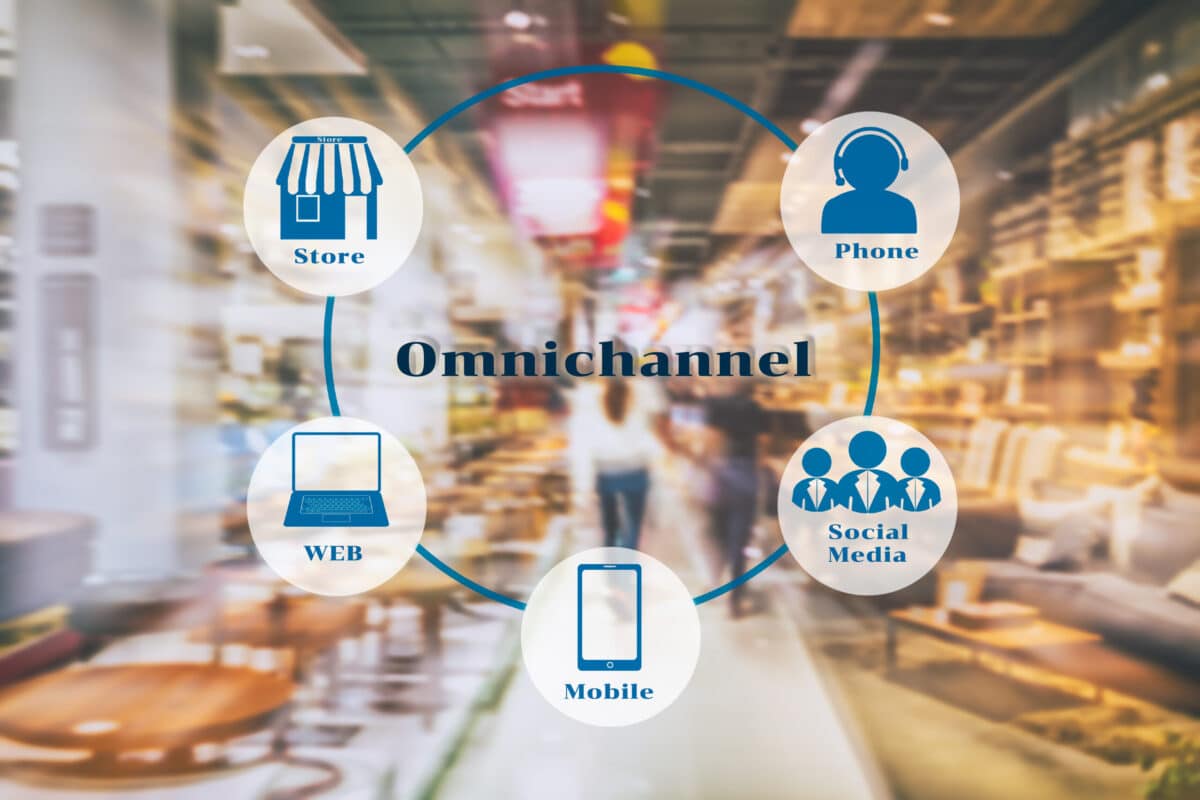Engage customers with an omni-channel approach
Omni-channel strategies are a crucial aspect for businesses, both new and established, to consider in their branding and marketing efforts. The idea behind an omni-channel approach is to engage customers through multiple channels and touchpoints, such as social media, websites, online ads, email, in-store experiences, and events.
Omni-channel approach examples.
Having a diverse approach to customer engagement is essential, as relying on only one platform or strategy can leave a business vulnerable. An omni-channel strategy offers customers a consistent and seamless experience with the brand, no matter how they interact with it.
For instance, a clothing retailer can have physical stores, online stores, social media accounts, and mobile apps, allowing customers to browse and purchase products through any channel while keeping their account information and purchase history in sync. The retailer can also create an emotional connection with potential customers by sharing customer stories on social media, highlighting the positive experiences others have had with the brand.
Similarly, a hotel chain can have a website, loyalty program, and mobile app, allowing customers to book rooms, access their loyalty points, and make requests through any of these channels. This information can be viewed and managed from a single dashboard by hotel staff, enabling the hotel to interact with guests in various ways.
For another example, a restaurant can have a website, social media accounts, and a reservation system, allowing customers to view the menu, make reservations, and leave reviews. Meanwhile, staff members can manage customer inquiries and online reputation, ensuring that the restaurant has a positive presence online.
As you can hopefully see, in all three of these simple examples, the omni-channel approach is characteristic of having multiple user-friendly touch points that allow potential, and current, customers the opportunity to interact with the brand in a multitude of ways.
First steps to take.
Now, for a small business to successfully use an omni-channel strategy, it needs to focus on the following steps:
Step One: Choose the channels and touchpoints that matter most to your customers. This includes your website, social media accounts, email list, in-store experiences, events, etc.
Step Two: Maintain a consistent brand identity across all channels. This includes using consistent logos, colors, fonts, tone of voice, and aesthetics so that customers can easily recognize your brand, no matter the channel.
Step Three: Offer a seamless customer experience. This includes integrating all channels, syncing customer data across channels, providing a consistent user experience, and making it easy for customers to switch between channels.
Step Four: Track customer interactions and behavior across channels. By understanding how customers interact with your brand, you can gain valuable insights into their preferences and behavior, allowing you to make informed decisions.
Step 5: Utilize personalized marketing and communication tactics. This includes targeted email campaigns, ads on social media, and customized website experiences, all of which are made to reach your customers through the channels they prefer. Also, don’t forget how important it is to talk on platforms where users can leave comments and get answers. This can be a very effective and fast way to have contextual and direct conversations with a potential, or current, customer.
By consistently following these best practices, small businesses can establish an effective omni-channel branding and marketing strategy that establishes a strong connection with their customers through a multitude of touchpoints and channels, ultimately leading to a consistent and seamless experience that elevates customer loyalty and fortifies the brand’s reputation.
If you’d like to learn more about how AVODAH can help you with brand strategy or marketing strategy, visit “connect” and schedule a chat, or fill out the form below!










